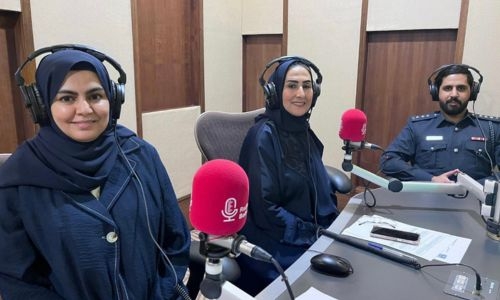National Ambulance handles 160 daily emergency situations
TDT | Manama
The Daily Tribune - www.newsofbahrain.com
Email: mail@newsofbahrain.com
Every day, as sirens wail 160 times across Bahrain, paramedics leap into action, racing to save lives from the brink.
From battling life-threatening heart attacks to navigating the chaos of car crashes, the National Ambulance’s 12 stations serve as a critical lifeline.
Yesterday, Captain Saleh Al Faihani opened a window into this high-stakes world on ‘Amn FM,’ revealing the intense pressures and unexpected challenges faced by his team.
The National Ambulance’s crucial role was showcased on ‘Amn FM,’ a radio programme produced by the General Directorate of Media and Security Culture in collaboration with Bahrain Radio.
Realities Captain Al Faihani, an officer from the operations room, took the opportunity to elaborate on the realities faced by his team.
He explained that the 12 ambulance centres are strategically placed throughout all governorates of the kingdom, their locations determined by thorough geographical studies and population data.
On average, these centres manage approximately 160 emergency calls each day. Extensive training He assured listeners that paramedics receive extensive training to prepare them for the demanding nature of their work, equipping them to provide high-quality emergency care.
Captain Al Faihani went on to describe the swift response capabilities of the service.
Call handlers are trained to deal with a wide range of communications, including calls from individuals with special needs. Translation support They are proficient in several languages, such as English, Hindi, and Filipino, and when the situation calls for it, they collaborate with external agencies, including embassies, for translation support.
He urged drivers not to block emergency vehicles after they have passed, emphasising that quick movement is crucial for ensuring safety and preventing further accidents.
He also stressed the importance of adhering to the instructions given by call handlers, as these can be vital in stabilising patients and preserving lives.
Related Posts

